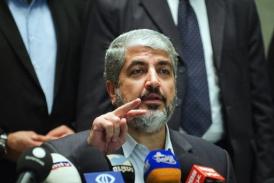Egypt’s Deputy Prime Minister and Minister of Health, Khaled Abdel Ghaffar, has called for more stringent oversight of pharmaceutical distribution, with a particular focus on psychotropic medications, in response to increasing concerns over misuse, addiction, and illegal exportation.
Addressing the 15th board meeting of the Egyptian Drug Authority (EDA) via video link, Abdel Ghaffar underscored the critical importance of protecting public health by ensuring that high-risk medications are dispensed strictly to patients with legitimate medical needs and under professional supervision.
“Differentiating between medically supervised use and illicit consumption is essential to tackling drug abuse and its societal repercussions,” he said, noting that the Ministry of Health is collaborating with relevant agencies to reinforce regulatory mechanisms.
The meeting was attended by several high-level officials, including Kamel Al-Wazir, Deputy Prime Minister for Industrial Development and Minister of Transport; Hassan El-Khatib, Minister of Investment and Foreign Trade; Mohamed Awad Tag El-Din, Presidential Advisor for Health Affairs; and Ali El-Ghamrawy, President of the EDA. Senior representatives from pharmaceutical procurement and accreditation bodies were also present.
Ministry spokesperson Hossam Abdel Ghaffar stated that the meeting reviewed pharmaceutical market indicators for 2023 and 2024, highlighting significant improvements in raw material availability and strategic inventory levels—developments that have strengthened supply chain resilience and boosted domestic drug production.
Currently, 91% of medicines sold in Egypt are locally manufactured—positioning the country as a regional leader in pharmaceutical self-reliance. The session also noted that Egypt’s pharmaceutical exports reached approximately $1.1 billion in 2023, reflecting growing competitiveness on both regional and international fronts.
Discussions also covered the proposed 2025/2026 budget for the EDA, with planned allocations aimed at enhancing the authority’s regulatory capacity and ensuring consistent access to safe and effective medications.
The board also reviewed Egypt’s ongoing efforts to attain international accreditation for the EDA, including recognition by the World Health Organization and the European Union. Plans were discussed to position the agency as a global reference institution in pharmaceutical regulation.
EDA President Ali El-Ghamrawy commended the continued support of the Minister of Health and reaffirmed the authority’s commitment to greater transparency and digital modernization. He noted that a broad digital transformation initiative is underway to detect irregularities and enhance the tracking of controlled substances, particularly psychotropics.
Presidential Health Advisor Mohamed Awad Tag El-Din cautioned that Egypt’s per capita medicine consumption significantly exceeds global norms, describing it as a “serious challenge” that requires heightened public awareness and stricter regulatory intervention.
He also voiced concern over the illicit export of medications, citing evidence of substantial quantities being smuggled abroad to supply informal markets. “Some individuals routinely send pharmaceuticals overseas to family members or intermediaries, which undermines our national stockpiles,” Tag El-Din warned.
He added that the government is coordinating with security and regulatory bodies to confront the issue and ensure fair and equitable access to medicines for Egyptian citizens. Tag El-Din also highlighted Egypt’s rising stature in global pharmaceutical governance, noting that several countries now regard Egypt’s regulatory practices as a model worth emulating.



